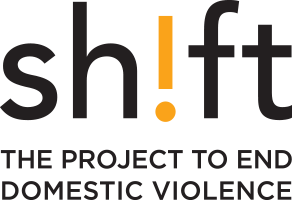On November 9, 2019, Elena was invited to address the first graduates of the North of McKnight Community Society’s training program for natural supporters to address and prevent domestic violence in their community. Natural supporters (also known as informal supports) are the people who victims reach out to for help, such as friends, family, and neighbours. Graduates were joined by over 200 community members and leaders to hear Elena speak about Shift’s research in the area of informal supports for the prevention of domestic violence.
The training program included six training sessions over several months to help build awareness of domestic violence in the Calgary community and how to prevent it.
“Since 2012, Shift has been researching and supporting agencies throughout Calgary and area to understand informal supports and to encourage agencies to include them in their prevention strategies,” Elena told the graduates and attendees. “It warms my heart to be part of the first graduation ceremony for natural supporters and to see so many organizations that recognize their value and provide necessary support and resources to them.”
Shift has found that informal supports are critical to violence prevention because:
• Victims of violence rely on informal supports before, during, and after a crisis.
• Informal supports often take on many roles, such as advocate, caretaker, lawyer, and therapist.
• They have a relationship with the victim, creating a sense of safety and trust. Friends and relatives may also have a relationship with the whole family including the perpetrator and children.
• Informal supports influence and shape norms around acceptable behaviours in relationships. We know that appropriate responses to disclosures of violence have a proven positive effect while inappropriate responses are harmful in many ways.
As a result of the training program, 34 graduates and community leaders understand how to recognize abuse and respond appropriately, provide necessary resources for victims, and how to engage men and boys in violence prevention.This is another great example of how Shift’s research is contributing to impactful community programs for the prevention of domestic violence.


